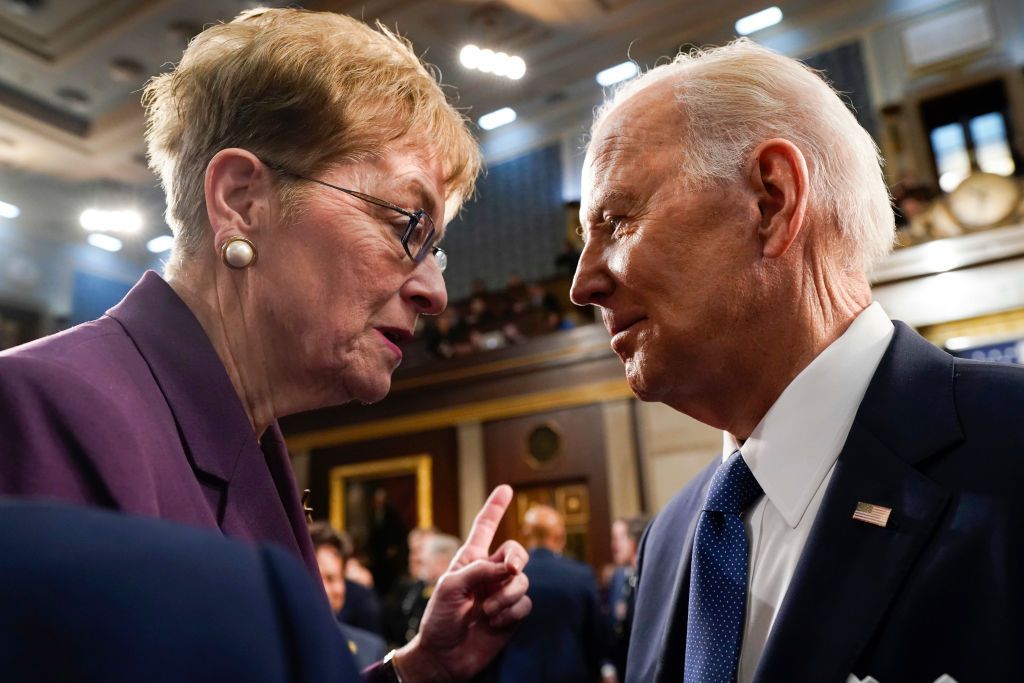‘Time is currency,’ constrained US congressional trips to Ukraine stymie diplomatic efforts

A series of logistical constraints on U.S. Congressional members’ travel to Ukraine is increasingly raising worries about the effectiveness of American diplomacy to Kyiv, members of Congress and Congressional advisors told the Kyiv Independent.
Since Russia’s full-scale invasion of Ukraine on Feb. 24, 2022, members of the U.S. Congress have displayed their allied support with consistent visits to Kyiv, journeys that are typically widely photographed.
But citing security concerns, the U.S. State Department does not permit representatives or congressional staff to stay overnight in Ukraine on official congressional travel or to leave Kyiv.
This means representatives have to fly into western Poland from Washington, take an overnight train into Kyiv, and leave for Poland before nightfall on another overnight train after about seven hours of work time.
With restrictions limiting the diplomacy these lawmakers are able to engage with in Kyiv and deterring others from visiting altogether, concerns are mounting that the safety protocols are limiting the potential expansion of support for Kyiv in Washington.
With the American presidential election less than a month away and a Republican ticket lead by former President Donald Trump that has expressed skepticism in further support of Ukraine, advocates and lawmakers say the most effective way to ensure Congress allows further aid to Kyiv is for members of Congress to be able to take longer trips to Kyiv.
Advocates and lawmakers say the most effective way to ensure Congress allows further aid to Kyiv is for members of Congress to be able to take longer trips to Kyiv.
And the more politicized questions of aid to Ukraine become in the elections, worries have set in that the ideal window for the most effective bi-partisan diplomacy in Ukraine passed without being fully seized before the election’s imminence set in this past summer.
“It’s ridiculous,” Rep. Jimmy Panetta, who has made numerous visits to Kyiv, said. “It’s great to show the people of Ukraine that we support them, but it’s not great for members of Congress to actually get a true education and evidentiary experience when it comes to building this argument and the support necessary for Ukraine.”
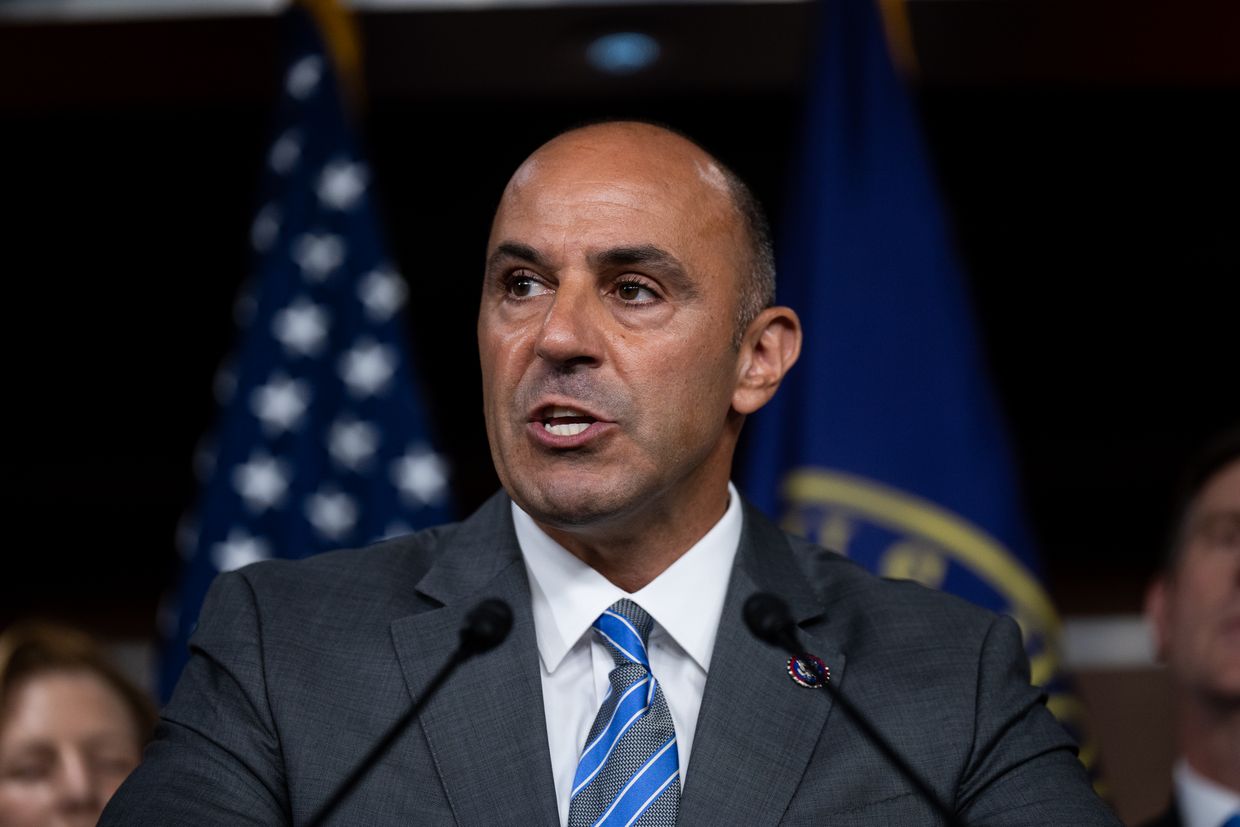
More representatives, especially those not fully in support of Ukraine, would be willing to go to Ukraine if it wasn’t for these restrictions as they’d view the journey as more worthwhile, a Congressional advisor who is familiar with the trips and agreed to speak on condition of anonymity said.
“It’s frustrating we’re not allowed to spend a little more time in Kyiv to get a taste and feel of what is going on in people’s minds, never mind Kyiv, but other places as well,” the advisor said. “People’s time is like a currency here, as well as attention.”
Privately-funded trips
It is because of these restrictions — which are common in wartime for members of the U.S. government — that Rep. Panetta says he and many others have come to rely on privately sponsored trips.
When groups like the Atlantic Council, the UN’s Refugee Agency, and the Center for Strategic and International Studies sponsor trips, representatives are able to stay in Ukraine for multiple days and travel beyond Kyiv.
These multi-day trips often feature visits to Kharkiv and Odesa and allow representatives to collect what Rep. Panetta says is the most effective knowledge and message to take back to non-supportive members of Congress.
“Actually getting in and getting on the ground and staying on the ground and having the conversations and having the experience that I believe is necessary to understand (Ukraine),” Rep. Panetta said.
“Getting in and getting on the ground and staying on the ground and having the conversations and having the experience that I believe is necessary to understand (Ukraine).”
The privately sponsored trips do however come with a requirement of six hours of meetings per day, which is not a requirement of official congressional travel. The benefit of the condensed official trips is that they typically come with the highest level of meetings since they run through the U.S. Embassy in Kyiv.
Citing security reasons, the State Department and U.S. Embassy in Kyiv declined a request to comment.
The U.S. embassy in Kyiv — which also operates under Washington-ordered restrictions — hasn’t returned to pre-full-scale invasion staffing, which Elizabeth Hoffman, CSIS director of congressional and governmental affairs, says contributes to the limited number of congressional trips that are time and resource-intensive for the embassy.
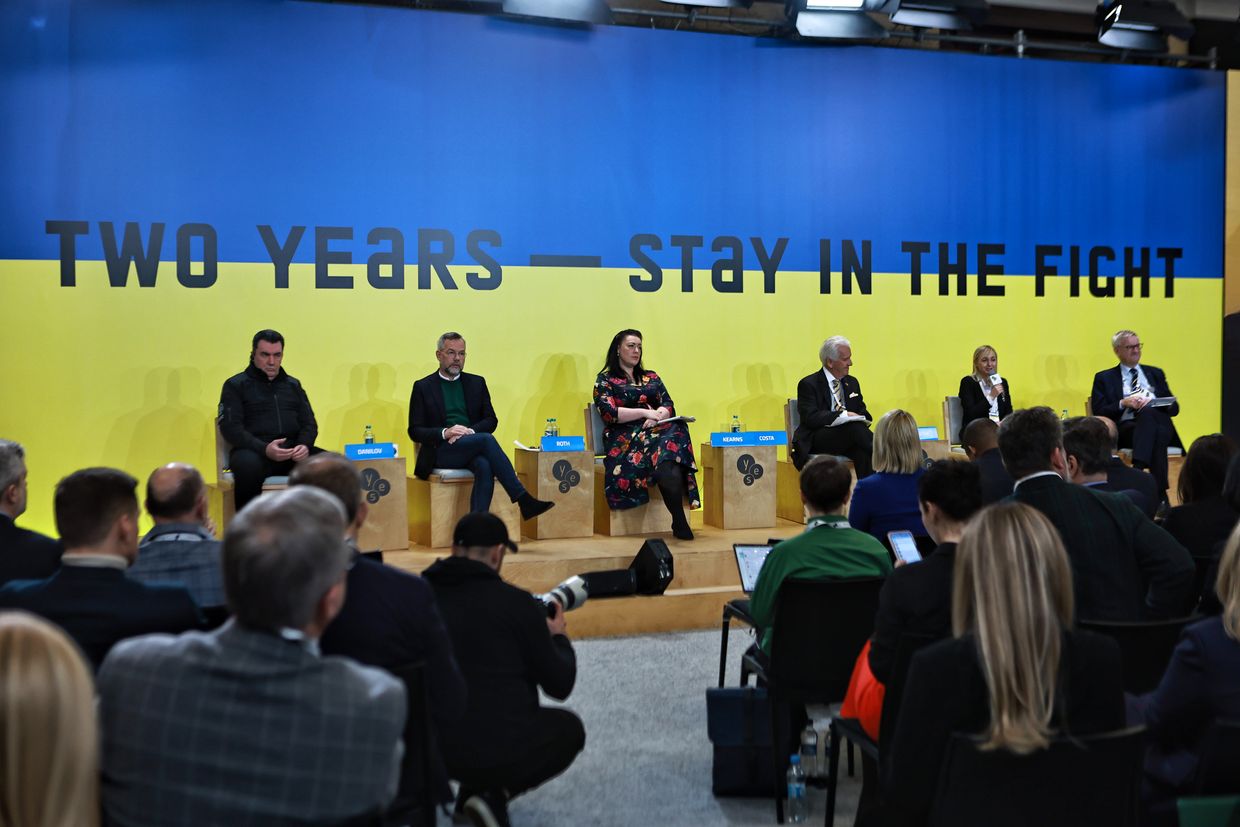
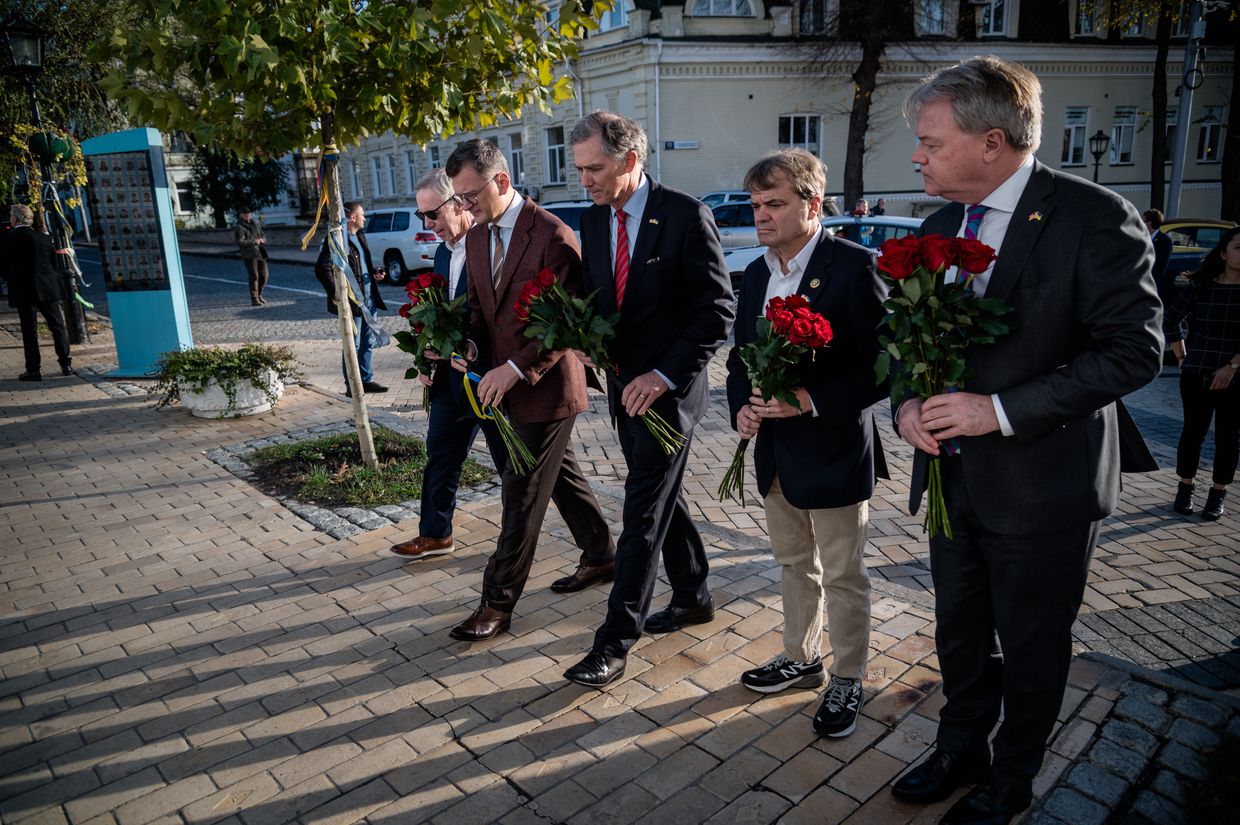
As a security measure, for every U.S. government employee who enters Ukraine, a Ukraine-based colleague must temporarily relocate outside of the country for the duration of the staff member’s visit, Hoffman said.
The U.S. Embassy in Kyiv declined to comment on whether this policy was still in effect.
In early October, staffers from multiple congressional offices were in Ukraine on CSIS’s fourth sponsored trip, the first of which they self-financed and the second with grants from the Howard G. Buffet Foundation.
CSIS, which said they initiate the trips and approach members of Congress with the intention of not taking the same member twice, declined to disclose the cost of such trips. After accounting for logistics and security measures by an outside company, each trip is under $100,000, Hoffman said.
Aside from the restricted official one-day delegations and the private trips that are likely to continue as a workaround, there is an additional option based on a decades-old law that is normally available to members of Congress that is off the table for diplomacy in Ukraine.
The U.S. has an agreement with nearly 90 countries that allows foreign governments to sponsor the travel and hosting of U.S. representatives in the name of cultural exchange. Besides the State Department’s sign-off, these agreements come with minimal restrictions and have long been used as an easy way for congressional staff and representatives to tour other countries.
Control of US House, Senate is up for grabs. What could down-ballot elections mean for Ukraine support?
The entire U.S. House and some members of the Senate are up for reelection in November — including some of Ukraine’s staunchest backers in Congress, which could have an impact on future support for Kyiv in its fight against Russia. All 435 members of the House will face re-election
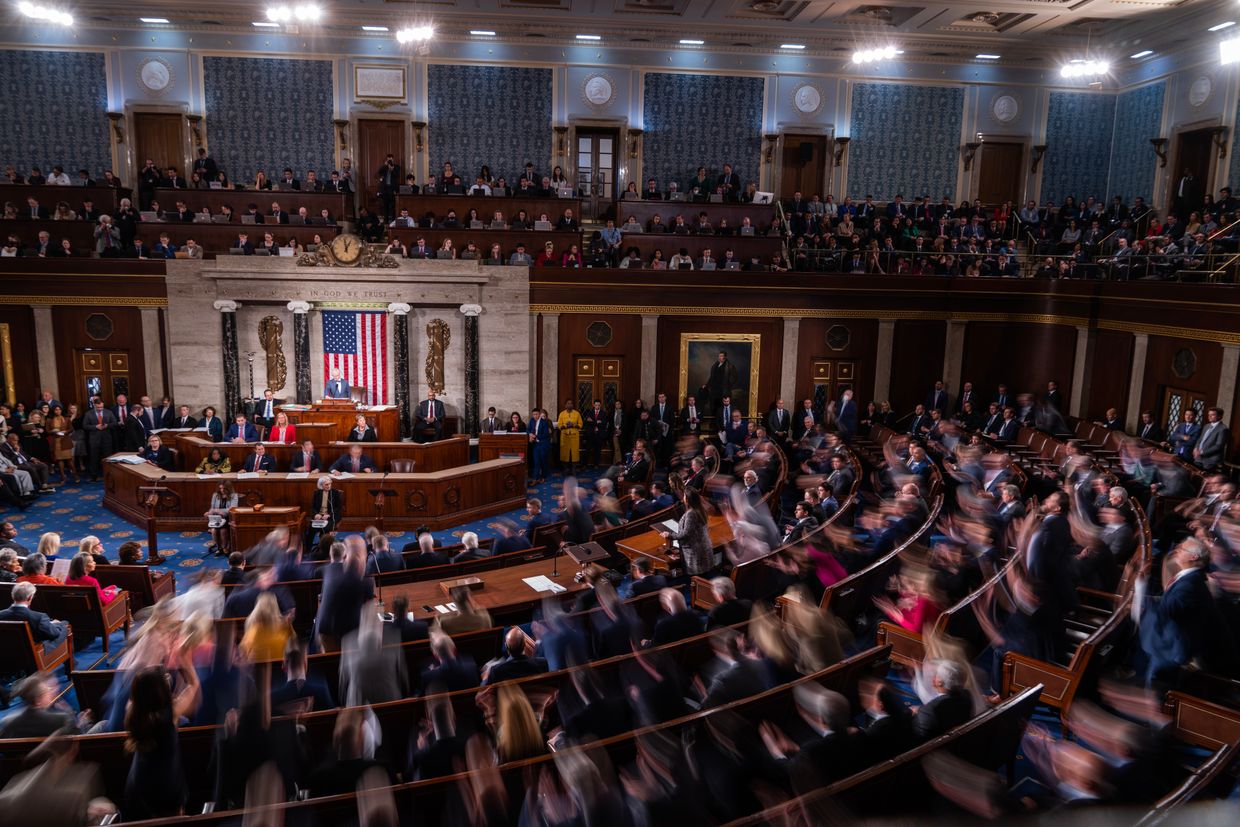
The decades-old law called the Mutual Educational and Cultural Exchange Act of 1961 includes countries such as Yemen, Venezuela, Georgia, and Azerbaijan.
Ukraine has never had a MECEA agreement with the U.S., meaning the Ukrainian government can’t sponsor cultural and educational trips for U.S. representatives. This leaves official and privately funded trips as the only option, both of which require immense documentation and pre-approval by House and Senate ethics committees, which is not required for MECEA trips.
There is a sense in Washington among some foreign policy experts that the restrictions are on par with the current administration’s widespread fears of escalation with Russia. The more U.S. personnel in Ukraine, the more Russia could see it as American involvement in Ukraine, the worry goes.
Some even think the tightening of diplomacy in Ukraine is an overcorrection from 2012 when four Americans including the U.S. Ambassador to Libya, J. Christopher Stevens, were killed in Benghazi, Libya.
Others see the limitations as commonplace wartime protocol and smart safety precautions. Regardless, advocates for Ukraine in Washington say there is no replacement for Americans being on the ground in Ukraine.
“The ability of members of Congress and staff to travel to Ukraine and to see the spirit of resilience among the Ukrainian people and to experience just a taste of what the Ukrainian people experience on a daily basis is the most convincing and most powerful advocacy tool that exists,” Scott Cullinane, Razom for Ukraine’s director of government affairs said.
“There’s nothing comparable that helps people in Washington understand what’s happening and to be convinced of the justness of Ukraine’s cause.”
While being one of Ukraine’s biggest conduits for advocacy in Washington, Razom’s 501(c)(3) status means they’re unable to sponsor congressional trips to Ukraine.
“There’s no replacement, no substitute for physically going and being present in Ukraine, even if it’s only just for a few days,” Cullinane said.
Bipartisan calls continue for Biden to lift restrictions on Kyiv using long-range weapons against Russia
At least 20 House Democrats and five House Republicans are calling on President Joe Biden to lift restrictions on Kyiv’s use of American long-range weapons to strike deep inside Russia, according to a letter sent to the president on Sept. 10 obtained and seen by the Kyiv Independent.
